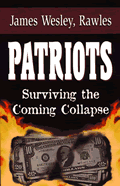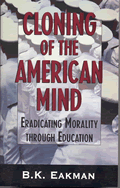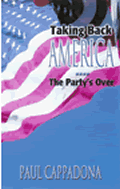Other
Eakman
Articles:
So, You Want to be an "Education" Candidate
The Resignation of a Schoolteacher
WHAT THEY DID TO "LOVE"
By
Beverly Eakman
February 27, 2005
NewsWithViews.com
Is there a psychotropic pill for the lovesick? If not, the pharmaceutical industry had better get cracking -- oops! A Freudian slip, there -- because falling in love is now symptomatic of multiple mental disorders.
In my January 26th column, "Not Another Mental Illness," I spoke too soon. In that piece, I bemoaned how, in Britain, "work" had suddenly morphed into a mental health issue, with the British government launching a mandatory "framework" of "tough new standards" to address on-the-job stress -- all of which, no doubt, will raise the cost of doing business.
Then, along came Valentine's Day, and I learned in a Washington Times piece by Jen Waters ("In Love and Madness" that yet another British psychologist, Frank Tallis, has a new book, Love Sick: Love As a Mental Illness. In it, the author notes that many elements of falling in love not only mimic mental "disorders," but cause them: expansive feelings (mania) often followed by depression, anxiety, insomnia, mood swings and obsessions.
What is it, all of a sudden, with the Brits?
Waters notes that in reviewing Tallis' book for the London Daily Telegraph, author John Preston equated the sensations of falling in love with "various forms of psychopathology�."
Definitely not a good sign for the matrimonial minded.
The Times article continues to quote Mr. Tallis: "While such feelings are common for people in love, when taken to another level, the obsession caused by love could almost become like stalking." Mr. Tallis then launches into a predictable litany of psychiatric symptoms, including possessiveness and jealousy, which he apparently views as "obsessions" even in more-or-less "innocent" infatuations. Then, of course, there is always suicide as a response to rejection.
"Lovesickness can � be lethal," Mr. Tallis warns. The Times interview continues: "It's only in the 20th century that doctors and psychiatrists stopped taking love seriously�. Some psychotherapeutic principles have existed since the 10th century. If you look at the writings of early Islamic doctors�."
Just what we need: an analysis of love and romance from zealot-"doctors" whose descendents keep women in shapeless, head-to-toe burkhas, allowed only to peek out occasionally from tiny bee-mask-like openings in their headdresses.
Then the clincher: Medication might be helpful.
Well, of course. Does anyone doubt it for a minute?
The Times interview with Mr. Tallis explains how studies "suggest" (but do not prove -- a subtle difference) "that when people fall in love and begin to obsess, it causes a drop in the level of serotonin, a brain chemical." Ah, yes, the old chemical-imbalance argument again! Supposedly, "the levels drop to the same amount as someone suffering from obsessive-compulsive disorder," according to Mr. Tallis, and then rises again as people "begin to fall out of love�."
Thus the justification for administering a psychiatric drug: "It's possible the administration of certain forms of anti-obsessional drugs, like Prozac, could ameliorate some of the obsessional symptoms of love," posits Mr. Tallis. Well, for some 90 percent of individuals, Prozac can be counted on to kill your sex drive; so, I suppose that could stop one's "obsessing."
Other psychiatrists (including one mentioned in the Times piece) are careful to caution that not all people in love are mentally unbalanced, but that for those who are disturbed to begin with, the risk of serious mental illness is heightened. But, again, who is merely quirky and who is "mentally unbalanced" is highly subjective.
One can, of course, cite headline-catching instances in which a person has committed suicide or killed someone to bolster a case for deranged "love." An example would be John Hinckley, who attempted to assassinate President Ronald Reagan and gravely wounded the President's press secretary -- all to impress actress Jody Foster, who didn't even know the fellow. (My guess is that Hinckley was the same kind of kid as the 60's radical protestors at Kent State -- undisciplined, with too much time on his hands and bored. Now that he has matured, and has had enough time to consider the stupidity of his act, of course, he wants out of the asylum.)
The notion that conduct which is out-of-the-ordinary is a "sickness" has resulted in countless miscarriages of justice, and is criminalizing normal behavior while the real hoodlums are being let out on the streets, pronounced "cured" with psychotherapy and drugs, only to repeat their crimes. Somehow, it never occurs to mental "health" advocates that there is no proof -- no blood test, no x-ray, no medical test whatsoever -- that proves brain chemistry is responsible for the choices we make in life.
But here's the thing that amazes me even more. In a day in which we are increasingly pressured to accept behaviors that many of us would call "sick," romantic love is suddenly worth an entire book devoted to mental illness. Every kind of normal conduct -- from working hard, to fidgeting in school -- is suddenly an indicator of mental dysfunction that requires psychiatric drugs, while obscene, lewd and criminal behaviors are normalized and excused.
Take, for example, the billions of dollars worth of pornography daily advertised via e-mail -- thousands of solicitations carrying subject headings of the vilest sort: well, these are entirely normal. Just making a living, you know. Merely self-expression, you see. Normal urges that are common to "everyone."
Pornographers, we are to understand, traffic in "adult" materials. How, precisely, did being stuck permanently in adolescence, fashionably become "adult"? They are not "adult." They are childish. Pornography caters to adolescents who never grow up, and those enticed into the posing business are usually drug-addicted, desperate, or deceived. Notice, I did not use the term "mentally ill"; just as thieves and murderers are not necessarily "mentally ill."
But the double standard applied to the word "adult" in the context of pornography exemplifies the selective semantics employed by the mental health industry to normalize one type of behavior while marginalizing another.
Psychiatry is complicit in what has become a political game having longer-term effects than, well, a pre-teenager's love-interest. We all know that the concepts of "marriage" and "family" are being redefined to suit a political agenda that normalizes and de-stigmatizes promiscuity and illegitimacy. In that context, it should come as no surprise that romantic love itself is now under suspicion.
The bottom line: Psychiatry is causing mental illness, not people.
� 2005 Beverly Eakman - All Rights Reserved
Order
Beverly's book, Cloning
of the American Mind is out of print, supply is limited
Beverly Eakman is an Educator, 9 years: 1968-1974, 1979-1981. Specialties: English and Literature.
Science Editor, Technical Writer and Editor-in-Chief of official newspaper, National Aeronautics and Space Administration, 1974-1979. Technical piece, "David, the Bubble Baby," picked up by popular press and turned into a movie starring John Travolta.
Chief speech writer, National Council for Better Education, 1984-1986; for the late Chief Justice Warren E. Burger, Commission on the Bicentennial of the US Constitution, 1986-1987; for the Voice of America Director, 1987-1989; and for U.S. Department of Justice, Gerald R. Regier, 1991-1993.
Author: 3 books on education and data-trafficking
since 1991, including the internationally acclaimed Cloning
of the American Mind: Eradicating Morality Through Education. Executive
Director, National Education Consortium. Website: BeverlyE.com
E-Mail: deakman@erols.com
The bottom line: Psychiatry is causing mental illness, not people.












